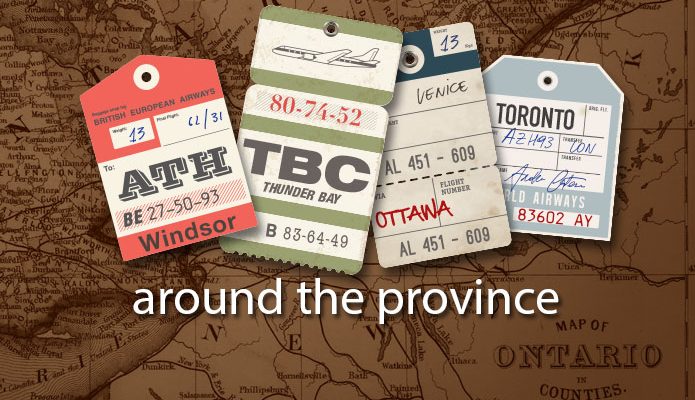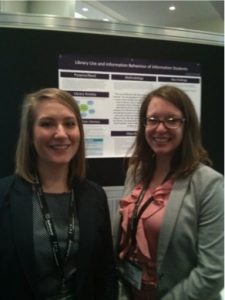
Snapshot from OLA SuperConference 2015: Suffering from Library Anxiety?
Library and information studies (LIS) students might seem like an unlikely group of people to suffer from library anxiety. However, a popular poster presentation at this year’s OLA Super Conference suggests otherwise.

Created by Hannah Saunders and Leah Strudwick, both Master of Information (MI) students at University of Toronto, this poster highlights findings from a study about library anxiety among library school students. As a sufferer of library anxiety herself, Strudwick was curious to investigate her experience and its causes. The pair also sought to determine whether the term “library anxiety” was a useful construct in examining information behaviour.
The study consisted of a literature review followed by interviews with MI students at the University of Toronto.
Results of the interviews revealed that it is often not the library itself, but rather the expectation of knowing how to do research “like a librarian” that is a key source of anxiety.
MI students felt hesitant to ask for help not because they found librarians intimidating, but because they felt they should be able to find the information on their own. This was one of the main findings of the study: as library students and future information professionals, students felt “I should know how to do it”! Although library schools are places where students seek to learn about the day-to-day practices of librarianship, asking for help sometimes seemed embarrassing for MI students who didn’t want to “lose face”.
Another trend the study revealed was that students sometimes found that when they did ask for help, they didn’t get the kind of help library school had taught them to expect. This is something Saunders refers to as a kind of “meta-frustration”!
What kinds of strategies are out there for overcoming library anxiety? Saunders and Strudwick say this is an interesting area for further research. She explained that in their interviews with MI students, conversations often came to a halt on the topic of possible coping strategies. Through the course of the interview, it became clear to Saunders and Strudwick that such strategies were needed but there was no consensus as to what they might look like. Strudwick suggested that part of the problem might be that coping strategies may differ depending on the type of library environment in which students were hoping to work, whether public, academic, or other.
When asked whether the duo might take this research further, Strudwick answered that they plan to present the poster at the 2015 TRY Library Staff Conference in Toronto this spring. Perhaps with more research on this topic, academic libraries and institutions that host library and information studies programs might find a way to alleviate library anxiety among library students and ease their transition to library professionals.
Katey Stickle is a second year Master of Information student at the University of Toronto’s iSchool. She is also a practicum student for OCULA.


